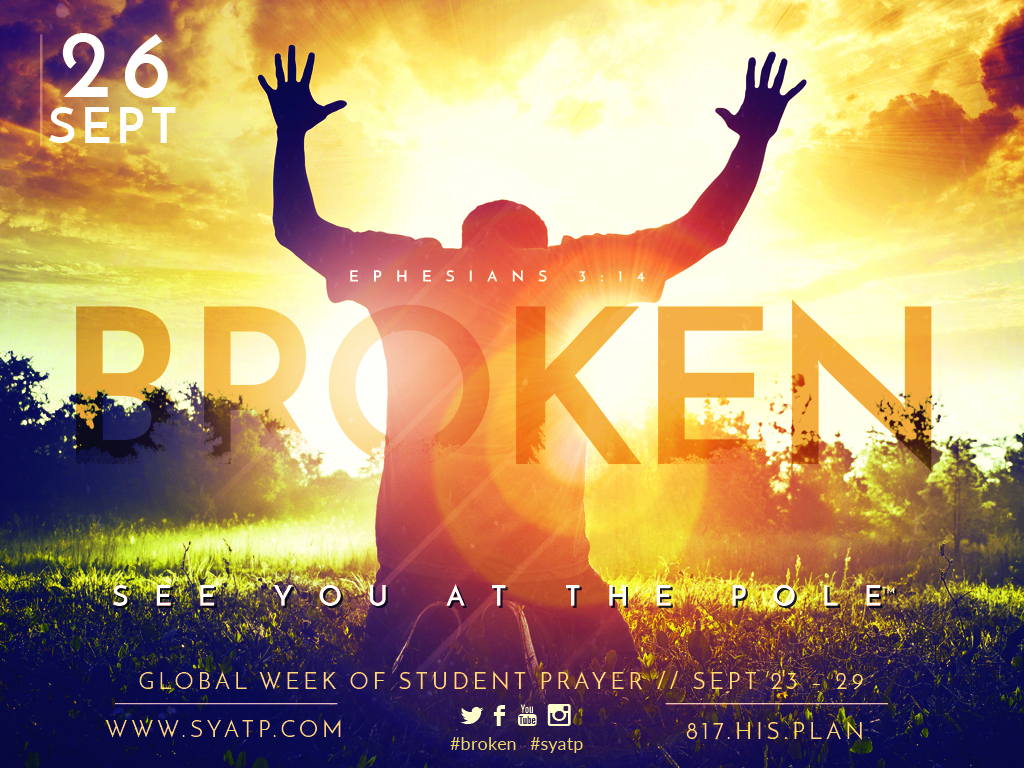
by Brian Hobbs | Nov 6, 2018
Forty years ago, the world heard about Louise Brown, the first “test-tube baby,” born by what was then a new “reproductive technology” called In Vitro Fertilization (IVF). Fast forward to today, and most families and communities personally know someone who has participated in IVF.
The rise and widespread practice of IVF—from Louise Brown to today—happened with relatively little discussion when compared to other issues. Yet it brings with it a whole host of ethical dilemmas and even some unintended consequences.
Consider a consequence being seen in the U.K., where according to a BBC report, the IVF rate is up while the adoption rate is down. To be specific, “In the last 40 years since the first ‘test-tube baby’ was born, adoptions in England and Wales have fallen by 62 percent. Meanwhile, IVF success rates for women under 35 have nearly tripled.”
What we see in our neighbors across the pond has implications for us in the United States, which can cause Christians to pause and reflect.
When dealing with hot topics like IVF, we must remember this is connected to couples, real women and men, who are experiencing the anguish of infertility. The infertility struggle can be devastating, affecting an estimated 10 percent of the population.
Thankfully, we serve a God who cares and sees the suffering of those who are infertile. In reading the Scriptures, we see that infertility is a topic that God cares about. Because we believe every life is sacred, we give thanks for everyone helped through infertility. Further, we give thanks for every child who has been conceived through IVF, knowing they are made in the image of God and have infinite worth and value (Gen. 1:27).
When issues surrounding infertility come up, it can be difficult for Christians to navigate. That is why I am thankful there are resources to help us, like a helpful new book, written by an Oklahoma Baptist University ethics professor Matthew Arbo. His book, Walking through Infertility: Biblical, Theological, and Moral Counsel for Those Who Are Struggling, is an ethics primer but also a pastoral guide.
Arbo’s book offers comfort and compassion for all those who struggle with infertility, providing hope and help on key issues ranging from adoption to IVF, foster care to medical treatments.
Regarding IVF, Arbo said in a recent interview, “There are a couple things I say in the book. One is for couples who are thinking about (IVF), then one for that couple that has already and who face other kinds of questions about what to do… It is important to realize that it isn’t a treatment; it is an option. We’re not treating the person; we are externalizing reproductive matter.
“There are some theological concerns about the disconnect between procreation and the sexual act between a man and a woman in a marriage covenant. It was the way it was designed by God. Although it is understandable why a couple might want to have a child of their own, it would be a mistake to pursue that course when the means of achieving it are questionable. There also is a back story to IVF. It required clinical research to refine its techniques. In refining those techniques, there was a destruction of hundreds of thousands of embryos, and that was an acceptance of the practice in order to refine the techniques of IVF.
“Another concern is enhanced risk. Any couple that procreates naturally accepts that. There are risks in that we don’t know. But with IVF there is an acceptance of an enhanced risk, with all the moving parts and the storage and personnel.
“Then lastly is the concern about unintended consequences. We don’t know sometimes what will happen. A couple could decide to have six or seven eggs fertilized in a clinic and have them stored and have a few children through that measure, then conceive naturally. They then have embryos still frozen, and they don’t know if they want to still have those children. That is an example of an unintended consequence. You can avoid that by not pursuing IVF. I have tried to do this in the right sort of tone and give a proper moral assessment. That is why I say I caution against (IVF).”
Today, as we mark the 40th anniversary of Louise Brown, let’s thank God for her life and for every single person conceived through IVF, as well as for every couple helped through infertility.
Meanwhile, we can take time to reflect further about the ethics and consequences of this reproductive technology that, four decades ago surprised the world and that is still with us every day.

by Brian Hobbs | Oct 17, 2018
I recently attended the 2018 Ethics & Religious Liberty Commission’s national conference, “The Cross-Shaped Family.” The event, which drew nearly 1,000 attendees and countless more online, was one of the more powerful events I have attended.
From Russell Moore to Beth Moore to Matt Chandler, the conference had an all-star lineup of speakers. The format included sermons, speeches, expert panels, video messages and more, each speaking to family life and the church.
Only this was not your ordinary marriage retreat or event about family that would focus almost exclusively on married couples. The ERLC event broke the mold, offering help and hope, no matter your age or life stage.
Below were some memorable lines from the event.
On Singleness
“Being single should not mean being lonely. If it does, then we are not being the kind of church the New Testament calls us to be… If you have to be in a romantic relationship to experience friendship and community in your church, then your church stinks.”
–Sam Allberry
On The Cross & Family
“Unless we see that the Christian life is defined by the cross, then we are going to fall for the devil’s offers because we are going to expect our families to bear a burden they cannot bear. Instead though, if you ground your identity and your inheritance not in your family but in the cross, if you see yourself as crucified with Christ, if you – as Jesus tells us – find your lives only by losing them, then you are actually freed to love your family.”
–Russell Moore
On Marriage
“Your marriage in the world today is as sacred in the sight of God as the perfect marriage of Adam and Eve back in the garden. (God) thinks your marriage is worth fighting for… Every marriage has problems. We’re really not very good at it. But marriage itself is not a problem. According to Genesis 2, God gave us marriage as a remedy.”
–Ray Ortlund
On Kid-Centered Families
“We cannot teach our kids to give their lives away for the Gospel when all they see is us giving away our lives for them.”
–Jamie Ivey
On Addressing Sexual Abuse
“When it comes to sexual abuse and sexual assault, we cannot move straight to solutions without first starting with sorrow.”
–Phillip Bethancourt
On What Matters Most
“Everything else may fall apart, but Jesus will always come through.”
–Beth Moore
In addition to these, there were many other noteworthy comments, insights, thought gems and messages from God’s Word. In coming weeks, the ERLC will share videos from the event at www.erlc.com.
In the meantime, check out Dr. Moore’s newest book, The Storm-Tossed Family. This conference and his book have come along at a time when we desperately needed it; and, I confess, at a time when I desperately needed it.

by Brian Baldwin | Aug 30, 2018
In 1990, a small group of high school students in Texas felt led by the Lord to pray for their schools. God gave them compassion for their lost classmates who needed to know Christ.
They determined that their school’s flag pole would be the best gathering place to pour out their hearts to God. Little did they know that it would lead to a movement in the years that followed that involved thousands of groups of Christian students doing the same thing!
This year, See You At The Pole (SYATP) will be held on Wed., September 26 and will provide a great opportunity for churches to unite around this movement. It is important for the unity and prayer emphasis around SYATP to spill out into our churches.
One of the best ways to make sure your church is a part of it is to attend one of the SYATP post rallies in your area. If the Lord is leading you to help organize one of these rallies we would love for you to keep these six key ingredients in mind.
- Prayer
See You At The Pole is all about prayer and realizing that only God can change hearts and make a genuine impact in our lives, churches, schools, states, nation, and world. The same is true for the rally you are trying to plan. Immediately begin to regularly pray and ask others to pray for SYATP and your rally.
- Purpose
Make sure you know why you are having the rally? Remember the youth leaders you are asking to join you will be asking themselves why they should put off their regular Wednesday night youth service to come. A few of the important purposes you want to communicate is prayer, unity in the body of Christ and evangelism.
- Partnerships
Partnership in a SYATP rally is key. How are you connecting to the youth leaders in your area?
An important step to partnering is to meet together in a youth leader network lunch and/or meeting to cast the vision, plan, and get on the same page. Reach out to your area’s Director of Missions and ask for promotional help and financial assistance.
Connect with all the evangelical churches in your area, not just those in your denomination. Work with Fellowship of Christian Athletes (FCA) and other campus ministry clubs to ask them to participate and help you get the word out about the rally. Don’t forget to get Christian Schools and Home School groups involved as well.
- Preparation
Determine where the rally will be held. In most cases meeting at a local church works great. In some instances it may be better to meet in a neutral location like a school gym or community center. Make sure you get the rally on the venues’ calendar ASAP. You want to schedule a time that works best for as many people as possible.
Make sure it does not start too early or too late. Communicate clearly when it will start and end in order to help other youth leaders make plans. Consider having food, door prizes, and other elements to create a draw to your rally.
Decide on a budget. Be creative if your budget is limited or even zero. Utilize all the resources you can. Check with your local association, local businesses, and ask other churches participating in the rally if they can participate financially. Determine who will be your rally speaker, band, or other program elements.
- Promotion
How will people know about the rally? They need to know sooner than you think, so get on it!
Challenge every one of your students to participate and ask the other local youth leaders to do the same. Promote SYATP and your rally on various social media outlets and ask the students to get involved and even lead those online campaigns.
Figure out how SYATP and the rally can be promoted at schools (Announcements, posters, etc.). Remember that word of mouth is always the most effective way to get people to come to things. Reinforce that thought with your leaders and students.
Also note that a successful morning of SYATP will give you great momentum for a successful SYATP rally! So make sure the students have a solid plan for their campus gatherings. Not do it for them, but provide assistance where you can.
- Persuasion
Because we understand our responsibility to the Lord, we should work hard to persuade others (2 Cor. 5:11). Your event should be a rallying point to persuade people to pray, have unity in the body of Christ, and to proclaim and accept the Gospel!
Make sure your rally speaker leaves plenty of time for a clear Gospel presentation and opportunity for students to respond. It is best to have the invitation planned out in advance. It could be a traditional “come to the front (or back) of the room,” raise a hand, small group discussion, fill out a card, send in a text, or talk to a youth leader type of response. Do whatever fits best with your people. Make sure and have a plan to record those decisions for crucial follow up and to report those decisions to the right people after the event.
Col. 3:23 says “Whatever you do, work at it with all your heart as working for the Lord, not for men.” We are not simply praying that there will be many SYATP rallies this year in Oklahoma. We pray that many rallies in Oklahoma will be done with enthusiasm, excellence, and most importantly through the power of the Holy Spirt! Check out www.skopos.org/syatp or www.syatp.com for more ideas and resources.
How will you be involved in this amazing opportunity coming to you with SYATP this year?

by Brian Hobbs | Jun 27, 2018
The people have spoken. On June 26, Oklahoma voters approved State Question 788, which was pitched as “medical marijuana.”
Ignoring reasonable voices of caution, including U.S. Senator James Lankford and Southern Baptist ethicist Russell Moore, as well as leaders from the business and medical community, Oklahoma has taken one giant leap toward marijuana with this step.
While this should sadden Christians, it should not completely surprise us. The way the measure was promoted, many people who approved it were not believing they were voting for a recreational use of this drug. They seemed to be acting out of compassion for those who suffer with protracted illness, even while opponents of SQ 788 demonstrated that the measure more resembled recreational than medical.
Nevertheless, now that so-called “medical marijuana” is coming to Oklahoma, what should Christians do? There are at least three things:
Wait & pray
It would be a mistake to overact to the passage of SQ 788. While efforts to push full recreational use are underway here in Oklahoma and elsewhere in the nation, we cannot panic. We need to pray for our leaders, whose job it becomes now to regulate and monitor this forthcoming law. We need to also pray that God would turn the hearts of people away from drunkenness and toward obeying the Holy Spirit.
Warn
The culture in America is increasingly in favor of marijuana use, and this state question gives marijuana a dangerous foothold in the Sooner State. Christians need to re-double our efforts on warning people—especially young people—about the spiritual and physical ramifications of these mind-altering, addictive drugs. We need to go back to the basics about why drunkenness is not only wrong and displeasing to God, but that it leads to a wasted life.
Win over
Ultimately, the “marijuana moment in America,” to borrow a phrase from Albert Mohler, is a sign of the times. The surge of marijuana legalization suggests a moral laxness. It also shows people seem to want license over laws. The Hippie movement of the 1960s, in that sense, is still in full bloom. That being said, no policy victories are permanent. If marijuana is truly dangerous and this law as poorly crafted as people warned, then the ugly side effects will begin to show up sooner or later. Until then, Christians must contend for our convictions in the marketplace of ideas, with confidence and standing on the Word of God.
As the marijuana moment marches on full speed for the time being, we know with confidence that only the Gospel of Jesus Christ and His Church will march on forever and ever.

by Brian Hobbs | Apr 18, 2018
As the Utah Jazz and OKC Thunder battle in the first round of the NBA Playoffs, the states of Utah and Oklahoma are doing battle over another adversary: marijuana.
A recent news story said, “The push for legalized marijuana has moved into Utah and Oklahoma, two of the most conservative states in the country, further underscoring how quickly feelings about marijuana are changing in the United States.”
To be specific, Oklahomans will be voting on June 26 on State Question 788, which has been presented to the public as a medical-marijuana measure for the Sooner State. But is it truly medical marijuana?
According to new research published by a coalition of SQ 788 opponents, the measure more closes resembles recreational marijuana legalization, than a careful implementation of medical marijuana. How? Consider these facts:
- “Unlike a normal doctor’s prescription, a medical marijuana license under SQ 788 lasts two years.”
- “In addition to MDs and DOs, five other types of physicians (including veterinarians, dentists, optometrist, podiatrists, and chiropractors) will be able to sign a medical marijuana license. There is NO requirement for these ‘physicians’ to have attended medical school.”
- “The threshold for justifying a medical need is extremely low as a patient only has to ‘articulate a medical need’ to qualify. Simply saying you at times have a headache will grant a 2-year license.”
These three facts, added with other concerned features of the measure, suggest that it’s a stretch to call SQ 788 “medical marijuana.” In fact, it could be called downright misleading. In a recent Baptist Messenger column, I discussed the matter more comprehensively.
Regardless of your position on medical marijuana and its legitimacy, we all can agree that every Oklahoman ought to research the specifics of the proposed ballot measure. Because about the time the NBA Playoffs are wrapping up, Oklahomans will be voting on this game-changing law.

by Brian Hobbs | Mar 20, 2018
Did you know that on June 26, Oklahomans will vote on allowing the use and distribution of a schedule one narcotic, as identified by the Federal Controlled Substances Act in the United States and the Drug Enforcement Act?
I refer to marijuana. To be specific, a ballot initiative (State Question 788) is coming before Oklahoma voters that “legalizes the licensed use, sale and growth of marijuana in Oklahoma for medicinal purposes.”
According to reports, Oklahoma is one of nine states in the U.S. that will vote on some marijuana legalization measure this year. Southern Baptist scholar and thinker Albert Mohler recently said, “2018 is going to be a pivotal year on the question of marijuana” in America, and he is right.
Knowing this, how should Christians in Oklahoma think about the issue? There are several important questions and concerns about this proposal, which include:
Is this unnecessary?
Some people do not realize that Oklahoma already has passed one form of legalized medical marijuana. In 2015, the Oklahoma Legislature passed—and the governor signed—a bill establishing a limited-basis pilot program for medical marijuana in the form of a “cannabis oil” liquid extract. The oil was limited to certain types of patients who qualified, such as those who suffer with childhood-onset epilepsy. Since that time, the law has been expanded. In this sense, as Oklahomans consider medical marijuana, they should know we already have it in a much more regulated form than what’s being proposed here.
Is ‘medical marijuana’ unproven?
The cannabis oil law was to be pursued more carefully and as part of medical study, while the implementation of SQ 788 seems messier and broad-based. Former Oklahoma Attorney General E. Scott Pruitt’s administration said at the time the ballot measure was advancing, “The proposition itself states there are no qualifying medical conditions, and while a physician has to sign-off on an application for a license, nothing in the law provides a physician will monitor usage.” In other words, the proposal is written is such a way that it’s not precise and, perhaps intentionally, broad.
Got a headache? Try marijuana for that! Feeling stressed? Try marijuana. Have trouble sleeping? Try this! These scenarios may sound far-fetched, but they are not, based on what we have learned from other states.
Meanwhile, medical marijuana has not been approved by the FDA; indeed current federal laws prohibit doctors from prescribing marijuana. This ballot vote, then, allows for medical doctors to license people to grow and retail medical marijuana, putting them in unproven territory and placing them at odds with the FDA and Federal government.
Is this unwise?
If Oklahoma voters approve this measure, the Sooner State could become a hotspot for the production and sale of marijuana, as we have seen from states like California (which legalized so-called medical marijuana in 1996). What we also have learned from other states is that medical marijuana becomes a public-policy “gateway drug” to demands for marijuana decriminalization and recreational use laws.
When the issue comes to a vote, people do not always hear these kinds of details and drawbacks. That is why issues like these are best left to our duly-elected legislators.
At a time when the jury is still out on our 2015 cannabis law; at a time when legitimate medical research behind medical marijuana is hard to come by; at a time when Oklahomans facing illness and suffering have other legitimate options, Oklahomans do not need take a chance on a practice that is unnecessary, unproven and unwise.
Come June 26, I plan to just say “no” to this proposal.





